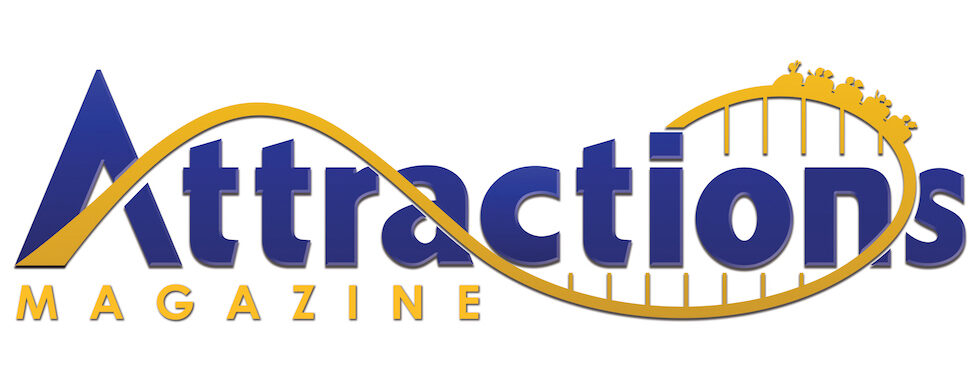Q&A: Jim MacPhee talks about his 43-year career with Disney, from watercraft driver to Chief Operations Officer of Walt Disney World
Jim MacPhee, former Chief Operating Officer/Senior Vice President, Operations at Walt Disney World, had a career with Disney that spanned 43 years. He shares his journey with the company, personal health challenges, leadership philosophy, and the experience that defined his career in his new book, “Engage, Inspire, Lead: Riding the Waves of Life and Leadership from my 43 Year Career at the Walt Disney Company.”
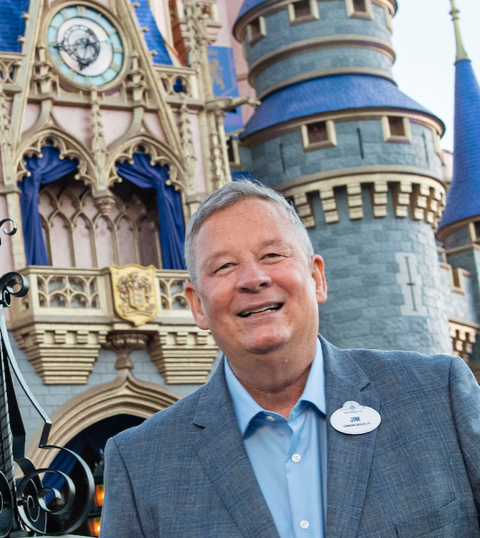
Photos courtesy of Jim MacPhee
Growing up in Ormond Beach, Florida, you must have been aware of Walt Disney World when it opened. What were your early memories, and how did you get your first job there?
In 1971 I would have been 13 or 14 years old, and I remember the drive over the first time we visited the Walt Disney World Resort in 1973 or ’74. My twin sister, two brothers, mom, and dad loaded up in the station wagon, and the drive from the east coast to Orlando was pretty sparse. There wasn’t a lot of stuff between Daytona Beach and Orlando.
I never had any aspirations at the time to think about working at Disney, but I did grow up in a tourism and hospitality sector. I spent a lot of time on the weekends and after school working in a variety of restaurants and hotels for summer jobs and spring break jobs. I didn’t know it at the time, but I took quite a liking to the hospitality business, so when it was time to move on from high school [I went] to Florida State University, which had a wonderful hotel and management program.
There was a time in my second year when I wasn’t quite sure what I wanted to do. I knew I wanted to work in hospitality, but I didn’t necessarily want to stay on the path I was on, so I decided to take a break from college. My father said, “Sure, but we don’t want you to just loaf around the house, we want you to start your life.” He made two suggestions: one was the military and the other was to check out that place, Walt Disney World.
I have a huge respect for those individuals who take on the military responsibilities, but it wasn’t necessarily at the top of my list, so I drove over to Orlando in the late spring, early summer of 1978 and walked into the casting building. There was just Magic Kingdom, a couple of hotels, and a campground at the time. I applied for a summer position.
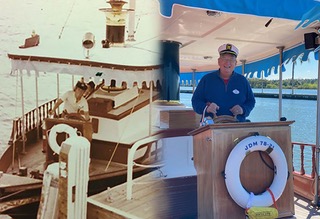
Were you hoping for any specific role?
I didn’t have any particular area of interest, but I found myself getting the job and showing up for the first day of orientation for the Traditions class. I was probably older than most of the people in my Traditions class, and old enough to qualify to work in transportation, so I was assigned to drive the boats, which was a dream come true because I grew up on the water and loved driving boats.
These were free-floating vessels, they’re not on a track. You’re out on Bay Lake and the Seven Seas Lagoon, and it was quite a treat. The nice thing about Disney is it’s a culture of community, not just a work job, and I established some life-long friends in that first year. It was an important entry into Disney because it created that sense of community right away.
What do you remember from your first day, and were you surprised at being trusted with these very expensive boats?
I was very surprised! I assumed I would be working inside the park – attractions or restaurants or merchandise – and I was somewhat familiar with transportation, but I didn’t realize what it took for people to come into the experience. Back then there were no computers, no iPhones, nothing, and you booked your vacations through the mail.
The ferry boats are 120 feet in length and they carry 600 people, and my first assignment was to drive a motor launch, the smaller of the first boats that ran between the Polynesian Village, the Contemporary Resort, the campground, and the Magic Kingdom. It was great; the calmness, and it was really challenging in the freezing of winter. It was a responsibility that all of a sudden became very serious, because a lot can happen on those vessels.
Was it fun, too?
Probably my most fun was driving the Electrical Water Pageant, the light show on the lagoon. It was two strings of seven barges each, with a set of Mercury motors on the front and back, and it was really tricky to navigate, but it was really fascinating. In hindsight, I couldn’t think of a better way to come in, and learn how the park is all interconnected.
I spent a couple of years in watercraft and I was able to grow within the front-line levels. It was a wonderful indoctrination into the company.
Did you then set your sights on advancing in other areas?
I never really set my sights on anything too far ahead, I was just blessed with working with a lot of great people. I wasn’t necessarily saying I want to be a park VP or the COO one day, I just wanted to continue to have fun and do great things.
My book is called Engage, Inspire, and Lead, and I chose those three words because I was blessed early in my career to meet people who engaged me, not just in the work I was doing but how I live my life, they inspired me on new and exciting things that were coming down the pipeline, and they led me through that.

At what stage did it occur to you that your career was progressing toward your eventual role as Vice President of Epcot?
Right after I moved from watercraft as a lead. When you’re in that category of lead you’re starting to be recognized as someone who has the potential to move into a management position, and the first rung of that ladder is an assistant supervisor; a front-line leader. We call them Guest Experience Managers now.
The real “ah-ha” for me was when I transferred from watercraft into the Magic Kingdom as a lead in the Main Street-Adventureland area, which was really Park Operations and heavily indexed toward the attractions side of the business. I say this tongue-in-cheek, but it was where “the cool people” worked because you could drive the jitneys, and the omnibuses when they were running on Main Street, and you set up for parades.
The Attractions area [of operations] was the one I grew up in the most. It was running attractions, area development, show quality, […] so it had a generalist feel and it gave me a perspective of what running a business and an area is all about.
But the big “ah-ha” was, shortly after Epcot Center was announced. Nobody knew what an “Epcot” was, so there was a conscious decision made to open up a preview center in Town Square on Main Street U.S.A. We opened up in what was The Walt Disney Story, which was a recap of Walt’s vision of bringing his stories to life in parks. It was a couple of theaters and a preshow area, and we converted that to Epcot Preview Center.
It was a rapid-fire immersion to everything Epcot was all about, from the Imagineers and senior leaders of Operations, and our job was to be the front-facing cast members to represent what was about to come in 1982.
What kind of impact did the announcement and eventual opening of Epcot have on you?
When you think about Epcot Center, it was a massive undertaking. It was essentially doubling the size of the Walt Disney World landscape. I was lucky to have gone through all of the training for the Epcot Preview Center, and as they were preparing for expanding in preparation for Epcot Center, I was promoted to my first management position as an assistant supervisor in Transportation in the parking area, to focus on the existing transportation operation for the Magic Kingdom, but to also prepare for the opening of Epcot. It was crazy, because everybody was really excited about what was happening at Epcot.
I always jokingly say I’m not allowed to have favorite parks, because I was responsible for all four of them at one point in my career, but I do have a strong fondness for Epcot, because it was truly Walt Disney’s last stated vision.
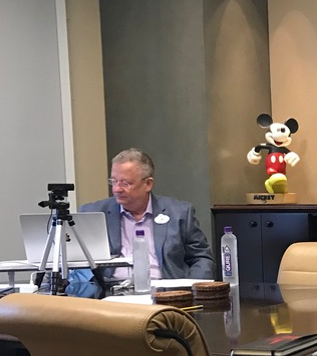
What challenges do you remember from the opening of Epcot Center?
At Disney – and we don’t really want this – we have a history of whenever we do massive press events, and grand openings, and things of that nature, we always have to battle the weather. I remember it was so cold, and so rainy.
There were two big opening nights; one was for Future World, the other was for World Showcase. That’s when thousands of media and press representatives come down to Orlando and get a preview of what the park was all about. That was some nasty weather, but it didn’t dampen the excitement of this park opening.
I spent most of my time for the opening of Epcot on the Transportation side. I was there on opening day, standing right outside the turnstiles. I remember when the first car rolled in on October 1, 1982, and it was just really, really, really neat. It was a challenging time, because now you’re dealing with two parks. We got through that opening successfully; it was very popular. I think it did about 14 million in its first year. That led to a variety of responsibilities.
What came next for you?
From Transportation I moved into being assistant supervisor, laterally, in World Showcase, and that was awesome. We had 10 countries at opening – 11 now, with the addition of Morocco a couple of years after Epcot opened. Just to walk into the individual attractions within each of those countries and get a sense of the cultural diversity with cast members who came in on international programs, it was the best immersion. There was no such thing as Google, so it was by far the most authentic experience that anybody could get with foreign countries without leaving the United States.
A massive change happened at the company in the early 1980s. How did that change things for you?
In the 1983, ’84 timeline, one of the biggest reorganizations the company ever faced happened with the changing of the guards between Don Tatum and Card Walker leaving their leadership roles, and that’s when Michael Eisner and Frank Wells rolled in. They brought a whole different energy and a whole different focus into the organization, and for 15, 20 years they grew the company exponentially through what they called the “Disney Decade,” which was the late 1990s. It was a massive period of growth across the resort.
I had a variety of responsibilities, and then I moved into a leader-of-leader role, becoming an area manager for Main Street, leading assistant supervisors. Then I did another stint at Transportation for the opening of Disney-MGM Studios. We had the grand opening ceremonies, with celebrities from all over the place, and I remember these private jets – big charter jets – brought celebrities from California, [and they] walked down the red carpet of Disney-MGM Studios.
What did the opening of then Disney-MGM Studios mean for your career?
Shortly after the park opened, I found myself in Operations in the main entrance area, which was transportation, vacation planning, ticket sales, and guest relations areas. That was a really fun area.
Bruce Laval was the man I worked for. He was the vice president of Disney-MGM Studios, and he’s the guy who created FastPass and photo ID [on tickets]. We also started the convention business in the theme parks.
Up to that point, conventions would come to Walt Disney World and stay in the resorts, and they would pay an enormous money to replicate Main Street U.S.A. in a ballroom. We said to ourselves, “Why are we spending the money to replicate Main Street U.S.A. when we have Main Street U.S.A.?” Then we started to think about doing after-hours parties.
Are we right in thinking that growing from the start of Epcot to being Vice President of Epcot was a significant moment for you?
It was a huge moment. I had actually worked at Epcot on five different occasions. When the opportunity came up to work at Epcot, that was unbelievable. It was probably one of the biggest highlights of my career, to be the vice president there. It was a hard job, because it’s focused heavily on influence, and you’re trying to drive standards across the business. I used to refer to it as “pushing a wet noodle” because it’s very difficult to get work done, but it’s very important. A theme throughout my career was lead through influence and lead through credibility.
When I got the call to go to Epcot to replace the previous vice president, it was a dream come true. By that point I had aspired to say, “Hey, wouldn’t it be neat to lead one of these parks one day?”
I got the nod to go to Epcot, and by this point I had two twins, who were four or five years old. It was wonderful. I’d take them out in their strollers every weekend and play as a guest, get to know the experience and understand it better, and get to see what the guests are experiencing, so I could have more credibility as I led the team.
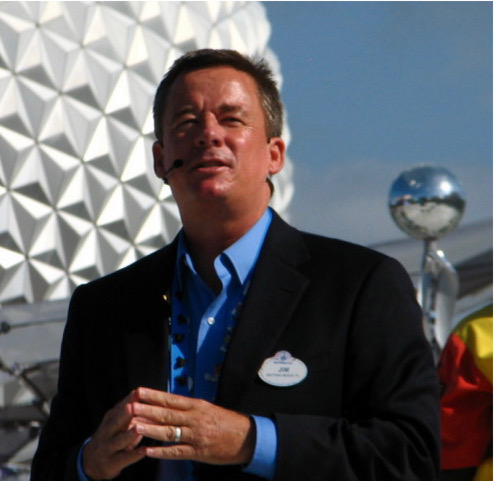
You remained at Epcot as Vice President until 2009. What milestone moments were part of that experience?
The 25th anniversary was coming upon us in 2007, and a lot of philosophy had changed at the senior levels of the organization, because they were looking at Walt Disney World as a resort destination, which was very appropriate, but the cost of that was a little bit less individual personality in each park.
[During] the 15th anniversary celebration at Walt Disney World we gave away cars and a variety of vacation stays. Every 15 minutes there was a prize given at the entrance of the parks. We drifted a little bit away from that, and there weren’t really any plans to do a 25th anniversary celebration, and that was one of the first areas of focus that I spent my time on, saying, “We have to do a 25th anniversary. Epcot is probably one of the most popular parks from a legacy perspective.”
So, I fell into this wonderful basket of gifts in which we were able to pull off a relatively modest but effective 25th anniversary celebration, which kind of reset the landscape on how we celebrate park milestones and things of that nature.
I said, “This is so cool. I could spend the rest of my career here.” Well, that was the wrong thing to say, because within two months I got a new assignment, and that was to lead the Next Generation Experience, which [included] MyMagic+. That was an unbelievably difficult, challenging, but rewarding experience.
Major changes were on your career horizon. Tell us about that.
In 2010, I was promoted to Senior Vice President to lead all four of the parks, and then operationalize the Next Generation Experience. I did that from about 2010 to 2016, and in about 2018 I was promoted to Chief Operating Officer for the entire resort, which included water parks, Disney Springs, resorts, theme parks, all the support organizations between training and leadership development, workforce management, and whatnot. That was by far the biggest capstone that anybody like me could ever realize. It was a blink, then forty years later I’m in the Chief Operating Officer role.
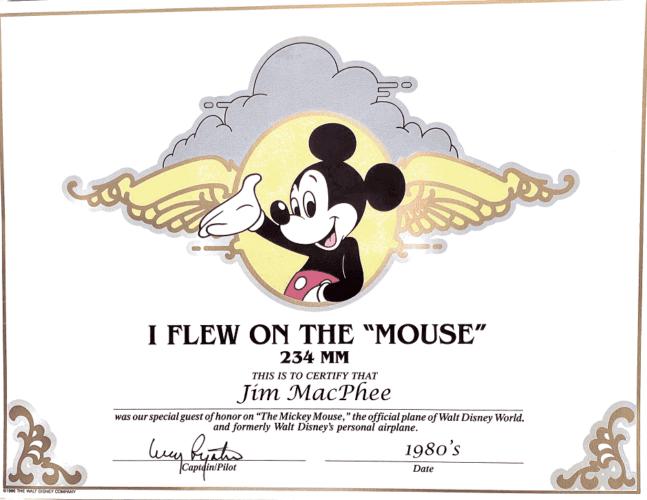
The pandemic created all kinds of problems for the travel world. Can you tell us your recollection of how it all happened, and how it impacted you personally?
That, ultimately, became my capstone, to unfortunately have to close the resort for a couple months, and then to focus on the reopening. Probably the most dire and trying time of the world, everybody went through it regardless of what industry you’re in, you’re going through some massive disruption.
Going back to spring of 2019, I had a pretty significant recurrence [of cancer] and found myself up at Mayo Clinic having to do some metastasis removal, so that scared me, because that was a pretty intense surgery. I came out of that fine, went back to work, was grinding through, and then late in 2019 I had another metastasis, and it really became my calling to make some decisions. It was a wake-up call, because now my own life is compromised because I’m heavily immunocompromised.
Once the pandemic was gearing up, we knew this was going to be big. This wasn’t going to be a hurricane. We had done plenty of hurricanes in terms of closing and opening, so we knew how to do that with our eyes closed. But none of us had ever dealt with a pandemic. We knew there was a light coming at us, and we knew it wasn’t the end of the tunnel. It was Covid.
Josh D’Amaro is a fantastic guy, [was] president of the resort and I reported directly to him, and we knew we needed to start putting our planning together for the unforeseeable future, to plan for the worst-case scenarios, which, obviously, worst-case would be closure.
We got our best and brightest talent together, and put somebody in charge of planning and somebody in charge of activation. You’ve got 75,000 people who are counting on you to make the right decisions. We tried to come up with the different scenarios on the “what ifs.”
Bob Iger, Bob Chapek, Jayne Parker, and Christine McCarthy were up in New York, and they flew down to Orlando just to check in and see what our plans were. It was an opportunity to demonstrate our early-stage planning process, how we were thinking about it if we had to go into a closure. We gave them a quick overview, and they were there to be nothing but supportive and help wherever they could.
They headed back to California on the same day, and by the time they got back, 7 or 8 at night in Florida, we got on the phone [with them and] the decision had been made on the plane ride back for Walt Disney World to close. We had been planning on a methodical closure date a week from then, and when we got on the phone a decision had been made to close in three days.
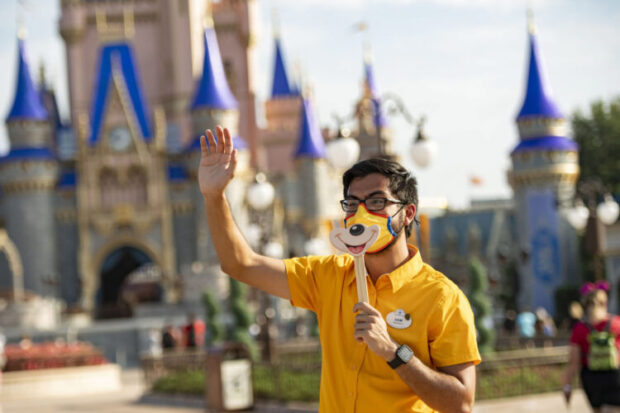
How did you achieve that on such short notice?
When you take the dial and you turn it up that much – to move from a perceived closure and active strategy to activation – it was all hands on deck. We knew how to close, but we didn’t know how to deal with a pandemic.
We broke our activation teams down into specific and minute detail on how we were going to do this, and it was 24/7. My boss, Josh, and my peers had kicked me out of Team Disney, where our headquarters are located here in Orlando, and I was frustrated but greatly appreciative of their concern for me, because they knew I was immunocompromised, having just had these surgeries, so I was probably one of the first ones to go into remote. Once we got everything shut down, everyone went into remote mode.
It was 18 hours a day on Zoom calls, talking through what’s the pandemic trend, what’s the Central Florida trend, what’s the Central Florida community doing, what’s the Central Florida governmental leaders doing, what’s the state of Florida doing, how are we interfacing with Burbank corporate headquarters, where they’re thinking about studios in addition to theme parks and resorts. You had to put a lot of structure in place.
How do you feel about that timeframe, with the benefit of hindsight?
I’m very proud of how we did it. I’m devastated that we had to go into some pretty massive furloughs, and ultimately some layoffs, but if you look at the business today, I believe we’re at or almost near the pre-employment levels that we were prior to Covid, and certainly attendance is strong, albeit with regulated reservation systems.
If I have to define a career capstone on balance with my own health challenges and say that I did something as a “ta-dah” or as a finale, and that something was reopening Walt Disney World. There’s no better way to call a career at that time than that.
Having reopened Walt Disney World, what was next for you?
We announced in December of 2020 that I would retire on April 1, 2021. I was there for the year after the reopening, but by the time we got that done everything would just be a “wash, rinse, and repeat” for me, personally. I always believe in going out on a high, and having led the reopening is about as high of a high as one can imagine.
I retired, got my kids off to college, and have been having fun ever since. I look at every chance I have while I’m still on this planet as an opportunity to hang out with the people I love, and it’s certainly family, but it’s also 43 years of great friendships that have developed.
Having retired, you took on the task of writing a book. What set you on that path?
When I retired, I had no plans to do any book. I certainly had people suggest it, but I’m pretty humble about talking about myself and my experiences, and when you write a book about your career, it’s “I this, I that.” I’m not a fan of the “I” pronoun, so it really wasn’t on my radar.

I had gotten a call from a publisher, a start-up organization in Maitland called BrightRay Publishing. Young entrepreneurial team. It started to weigh on my mind, and maybe I should think about it.
I was talking to my wife about life in general, our kids being 19 years old, and came to the fast conclusion that if I ever wanted to cement a legacy for myself, for them, then writing about my career, which represented two-thirds of my life, I said, “Why not?”
I started playing around with an outline, and ended up meeting these people who assisted me in the writing process. I had an outline, I had some preconceived thoughts, and the book is the outcome of all that.
Looking back on your career, what are your thoughts?
If I reflect back on my career, I was blessed with being at the forefront of growth. New parks – Epcot, Studios, Animal Kingdom.
Could I join the company today and in 40 years aspire to and realize the position that I retired from? I dunno. It’s a hugely competitive landscape. I was able to grow from a one-theme-park environment to a four-theme-park environment; from a 10-hotel environment to a 30-hotel environment. I didn’t get to where I was because of my intellect, or because I was academically astute at operations or engineering or anything like that. I firmly believe that I was blessed to get to the position that I retired from because of my ability to be open-minded, my ability to embrace uncertainty and know that goodness always prevails.
There were times in my career when I said, uh-oh, I might have just ended it a little sooner than I wanted to. But if you do the right thing and you stay focused on it, you’re going to grow and develop.
What are your thoughts on great leadership?
I don’t believe that great leaders of today get to the position they’re in because of their technical discipline and their industrial experience. I believe those are important tools in the toolkit, but one of my favorite leadership books is a relatively old, dated book called “Good to Great,” written by Jim Collins, and he says the biggest characteristic that makes [leaders] successful is humility. I believe strongly in that.
We should be able to shine the spotlight on people who are working for you and with you, bringing the experiences to life. Not look in the mirror, but look out of the window. Be humble but driven, at the same time.
What do you think about today’s career landscape?
It’s a much more competitive world. Companies that don’t embrace fluidity and flexibility in dealing with the younger generation’s mindset of “Make me happy, I have other options,” you have to embrace that. I have a huge passion for driving an organization with a commitment mindset as opposed to a compliance mindset, and the only way you can get a commitment mindset is to go above and beyond the human interaction and explain the “why” behind things.
What you’ll see in my book is that I’m heavily focused on the importance of relationships in life and at work. The reason I have such a strong passion for that is because I believe that Disney is phenomenal at everything we do, but I also believe the competitive landscape is extremely challenging right now.
Everybody is building great things right now, and I think Disney’s ability to combine great storytelling to great experiences, and then have great cast members and leaders that bring them to life, is the secret sauce. Competition is building great things, but we always look at legendary guest service as our key differentiator.
Out of the many gifts your career gave you, is there one that stands out?
I have a window on Main Street now, and it was the most wonderful gift I could have received as a person who had been with the company for a long time. My attribute on that window is the Academy of Talent Education & Training. I’m on the “faculty” with three distinguished colleagues who retired within a year or so of my retirement, and my [title] is “Talent Development.” I look at that as the finest accolade or award that I could receive.

Engage, Inspire, Lead: Riding the Waves of Life and Leadership from my 43 Year Career at the Walt Disney Company is now available as an ebook, and will be released in paperback on June 28, 2022 and hardcover around July 6, 2022.
Watch for Part 2 of our interview with Jim, when he talks about the Next Generation Experience and the creation of Disney’s MagicBands and MyMagic+.

